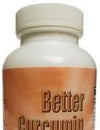A summary of published research has shown that a meat-based diet, also called a Western-like pattern tend to be associated with increased markers of inflammation (Barbaresko J, et.al., 2013).
However, a vegetable, fruit-based dietary pattern was instead linked to an anti-inflammatory diet.
Based on a scientific research, several common inflammatory markers were documented to be lower in women with higher intake of anti-inflammatory foods such as cruciferous vegetables (Jiang Y, et.al., 2014).
Moreover, this indicates that a high vegetable intake is a very important factor if you want to reduce inflammation.
When a diet with a high antioxidant capacity was compared with a low antioxidant capacity diet, it was found that the high antioxidant foods decreased highly sensitive C-reactive protein (hs-CRP) an inflammatory marker related to increased cardiovascular risk as well as general systemic inflammation (Valtuena S, et.al., 2008).
Also, liver enzymes were reduced, indicating decreased inflammation of the liver.
Moreover, how much protein we eat and also what kind of protein we eat affects inflammation.
When 2 groups on the same diet with one group having a low protein intake and the other group a higher protein intake, several inflammatory markers were found to be lower in the group eating less protein (Lopez-Legarrea P, et.al., 2014).
In addition, the type of protein eaten was also found to be important.
Hence, animal and meat protein was associated with increased inflammation. On the other hand, vegetable protein and protein from fish did not have that effect. Instead, they can be considered as natural anti-inflammatory remedies.
References:
Jiang, Y., Wu, S. H., Shu, X. O., Xiang, Y. B., Ji, B. T., Milne, G. L., … & Yang, G. (2014). Cruciferous vegetable intake is inversely correlated with circulating levels of proinflammatory markers in women. Journal of the Academy of Nutrition and Dietetics, 114(5), 700-708.
Barbaresko, J., Koch, M., Schulze, M. B., & Nöthlings, U. (2013). Dietary pattern analysis and biomarkers of low-grade inflammation: a systematic literature review. Nutrition Reviews, 71(8), 511-527.
Valtueña, S., Pellegrini, N., Franzini, L., Bianchi, M. A., Ardigo, D., Del Rio, D., … & Brighenti, F. (2008). Food selection based on total antioxidant capacity can modify antioxidant intake, systemic inflammation, and liver function without altering markers of oxidative stress. The American journal of clinical nutrition, 87(5), 1290-1297.
Lopez-Legarrea, P., de la Iglesia, R., Abete, I., Navas-Carretero, S., Martinez, J. A., & Zulet, M. A. (2014). The protein type within a hypocaloric diet affects obesity-related inflammation: the RESMENA project. Nutrition, 30(4), 424-429.







